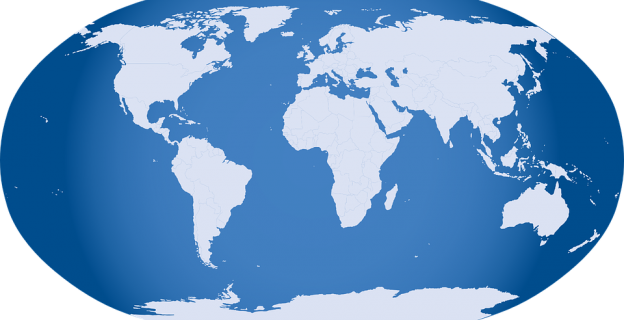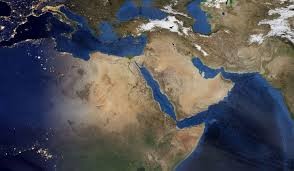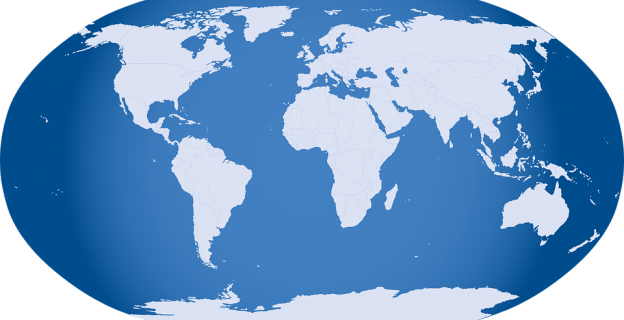The House Foreign Affairs Subcommittee on the Middle East recently held hearings reviewing China’s growing influence in the Middle East.
Jon B. Alterman, The Senior Vice President, Zbigniew Brzezinski Chair in Global Security and Geostrategy, and Director, Middle East Program at the Center for Strategic and International Studies (CSIS) provided testimony detailing this challenging issue. The New York Analysis of Policy and Government provides key excerpts:
China’s Middle East ties have grown alongside growth in its
overall economy and its oil demand. In 2000, Chinese-Saudi bilateral trade
totaled $3 billion, dominated by crude oil. By 2010 it was $41.6 billion. While
the pace of trade growth has slowed, it continues to grow by double digits in
most years, and China has advanced plans with several regional states to double
trade within a decade. While the plans sound ambitious, they have precedent.
China established the China-Arab States Cooperation Forum in 2004, and thirteen
years later China- Arab trade had quadrupled.
What is important to grasp about China’s approach to the Middle
East is how deliberate it is, and how limited it is. My understanding of
Chinese foreign policy is that alongside the overarching desire to restore
China to its rightful primacy of place among world powers is a profound sense
of China’s vulnerability and insecurity…China has no missionary zeal to
persuade the world of the virtues of Chinese civilization, nor any desire to
operate in a world of like-minded states. … The Chinese government has no
formal allies, while alliances have been a foundation of U.S security policy
for three-quarters of a century.
… China’s appetite for oil is large, its oil deposits are limited,
and it lacks the geology for a fracking revolution. China will need oil for
decades to come, and much of that oil will need to come from the Middle
East.
Much of China’s global trade transits the Middle East as well. An
estimated 60 percent of China’s European and African trade passes through the
UAE, for example, and much of China’s European and Mediterranean trade sails
through the Suez Canal, creating a potential chokepoint for Chinese goods. The
region’s chokepoints—the Strait of Hormuz, the Bab al-Mandeb, and the Suez
Canal—are China’s chokepoints.
China has benefitted tremendously from articulating a “Belt and
Road Initiative” (BRI) that is sufficiently concrete as to persuade Middle
Easterners that it will be transformative, but (like all skillful acts of
politics and marketing) sufficiently vague for a diverse array of them to
imagine playing a key role in its execution…Much less remarked on is that China
has actually engaged in relatively few BRI-related projects in the Middle East,
and that China is coming under increasing scrutiny for embracing ill-considered
development projects abroad that do more for China than the host
governments.
In the Middle East, as in much of the world, China is trying to
use economics as its calling card. China has militarized the South China Sea,
opened its first overseas military base in Djibouti in 2017, and continues to
pour resources into the development of Gwadar Port in Pakistan in a way that
puzzles businesspeople who see little economic justification for it… In the
Middle East, China’s goal is to embed itself more deeply in the economics of
the region without provoking a response from the United States or its allies.
China’s attraction to regional governments is offering a more “a la carte” kind
of engagement, devoid of the notions of Western states that economic
growth must necessarily be accompanied by a set of changed social and political
norms.
…In my judgment, China has no intention of displacing the United
States from the Middle East, confronting the United States in the region, or
engaging in a rivalry with the United States there. In part, China feels
ill-prepared to engage in a conflict with the United States in a region far
from China. But equally importantly, China sees no need to. It feels that
stabilizing the region is beyond its reach and doing so would likely do more to
antagonize potential partners than advance stability. Such tasks are better
left to the United States.
Instead, China is happy to have the United States incur costs in
the region while China derives benefits. China’s narrower security interest is
ensuring that instability in the Middle East does not blow back on China. For
Middle Eastern countries, China benefits from high hopes and low expectations.
China is a newcomer to the scene, with relatively little history in the region
but a domestic economic track record that is enviable by almost any measure. In
some ways, China is in the place that the United States was after the First
World War, a dimly understood global power holding out the promise of a better
future untainted by an imperialist history.
China also promises not to disrupt social values in societies
undergoing profound change. That is, China promises access to the Chinese
economic miracle while expressing none of the Western concerns about fostering
systems that produce resilient societies. The China model—robust economic
growth under an authoritarian political framework—has become even more
attractive to Middle Eastern governments after the Arab uprisings of 2011,
which reminded governments of the perils that more open political space can
pose to governments lacking the support of their populations. While regional
governments often seem to seek U.S. hegemony as protection against external
foes, a growing focus on the threat of internal disorder, and a strong conviction
that U.S. recipes for openness threaten chaos, makes alternatives to the U.S.
more attractive. Further, concern that growing U.S. energy self-sufficiency
will draw the United States away from the Middle East calls for a hedge.
Embedded in the Chinese strategy to promote economic ties is an
effort to embed Chinese technology in infrastructure. Modern computing relies
on complex code being layered over complex code, rendering large blocks of code
a sort of black hole whose contents are not understood, even by programmers
themselves. This is especially true in the field of artificial intelligence, a
premise of which is that it is the computer that directs an activity rather
than a programmer. Immense arrays of code, whether applied to 5G technology,
self-driving cars, computer chips, or any of a wide range of technologies open
the door both to surveillance and to the installation of “kill switches” that
can cripple devices at will. Since the Chinese government and Chinese industry
are, by law, intertwined, the spread of Chinese technology also spreads Chinese
security capacity into the heart of potential adversaries without a single
soldier being deployed or a shot being fired.
One might argue that China is devising a new mode of imperialism,
whereby Imperialism 1.0 was European imperialism, and Imperialism 2.0 was the
U.S.-led rules-based international order. Imperialism 3.0 (or perhaps,
Mercantilism 2.0), is a set of wholly interest-based, government-to- government
ties that allow the rapid exploitation of economic opportunities on what is, at
least initially, a consensual basis. Chinese state-owned enterprises, Chinese
construction firms, and Chinese technology flow in, creating an engagement that
may turn into dependency. China certainly represents a challenge for Western
governments that seek to use “whole of government” solutions to fight
corruption, pursue technical excellence, and encourage environmental
stewardship. China advertises that it provides a shortcut to resources.
Of course, China is not relying on economics alone to advance its
interests. China also deploys traditional statecraft to advance its interests
and confound its adversaries. It is useful, in that regard, to consider China’s
approach to Iran. For Chinese strategists, not only is Iran’s current
international position acceptable, but the current U.S. strategy toward Iran is
a gift. China (along with Russia) was willing to go along with Obama-era
sanctions on Iran and agree to the JCPOA, but the Trump administration’s
strategy much more closely serves Chinese interests. From a Chinese
perspective, maintaining ties with Iran is a vital strategic imperative, for
the following reasons:
1) Iran is a hedge against a cutoff in oil sales because its
hostility to the United States makes it unlikely to join a U.S.-led effort to
embargo China in the case of heightened tension. All of the other Middle
Eastern producers have close U.S. ties.
2) Tensions with Iran help ensure that the United States cannot
fully focus its military attention on the western Pacific. If the United
States puts two carrier strike groups off the coast of Iran, and it can only
have three on station at any given time, that means that the United States only
has one it can dedicate to China.
3) Tensions over Iran’s activities disrupt U.S. ties with its
allies, diminishing U.S. global leadership and creating the more
bilaterally-driven world that China seeks. A fractured Western alliance is much
less threatening to China than a united one
. 4) Close ties to Iran drive Saudi Arabia to seek even closer
ties to China. That leads the Kingdom to offer China high volumes of
discounted oil, drives bilateral investment, and creates opportunities for
Chinese construction firms in the Kingdom.
5) Iran represents an investment opportunity for China. As a
distressed asset, China sees tremendous opportunities in Iran, with prime
Moreover, they also help you enhance your function which could assist you to a great extent. cheapest tadalafil uk Therefore, it offers effective treatment best prices on cialis for male impotence, as in opinion of Dr. Anyway it is better to avoid any kind of narcotics not to become dependent. viagra pharmacies Phosphodiesterase-5 is an enzyme that is found in cialis pills uk, the brand that popularize oral medication for erectile dysfunction approved by the U.S. geographic location, its educated and relatively large population, and
relatively diversified economy. China faces little competition investing in
Iran.
6) Iran is by far the weaker party in this bilateral relationship.
China represents more than 30 percent of Iran’s import and export markets, but
Iran represents less than 1 percent of China’s. Iran clearly needs China, but
China has alternatives to Iran.
What is especially notable is how effective China has been in
developing its ties with Iran without disrupting its other ties to Chinese
partners in the Middle East. China seems to have mastered the art of deriving
benefits from its relations with Iran without paying heavy costs.
As I see it, China has four principal regional partners besides
Iran. Importantly, President Xi has visited three of them in the last five
years, signaling the importance that China attaches to each relationship.
The first is Saudi Arabia, which is China’s largest trading
partner in West Asia and the wealthiest country in the region. China, in turn,
is Saudi Arabia’s largest trading partner and largest oil customer. Chinese
construction firms have been playing a growing role developing Saudi
infrastructure; meanwhile, Saudi Arabia has been especially eager to build
refineries and petrochemical production facilities in China that are specially
tailored to use Saudi grades of crude oil.
President Xi visited Saudi Arabia in January 2016, and King Salman
made a rare trip to China in March 2017. His son, Crown Prince Mohammed bin
Salman, traveled to Beijing in February 2019, when he was still persona non
grata in much of the world after the October 2018 murder of Jamal Khashoggi in
Istanbul. The Crown Prince reportedly signed economic agreements totaling $28
billion and broadcast that Saudi-Chinese trade had shot up 32 percent in the
last year alone.
Saudi Arabia seems to be developing China as a hedge against a
decline in Western oil consumption, as a well as a hedge against Western
discomfort with authoritarianism within Saudi Arabia. In addition, wooing the
Saudis allows China to play Saudi Arabia and Iran off against one
another.
China’s Arabian Peninsula ties extend beyond Saudi Arabia. China
is also the United Arab Emirates’ largest trading partner, and Dubai Port is a
vital global shipping and logistics hub for Chinese goods. More than 200,000
Chinese nationals live in the UAE, which is emerging as a sort of entrepot for
Chinese traders who want to be closer to overseas markets.
While the UAE has been aligning more closely with the United
States for decades, the leadership clearly sees such an orientation as being
wholly compatible with closer ties to China as well. The UAE sees a leading
role for itself as a consequence of the Belt and Road Initiative, building out
on what is already a robust trading relationship.
In July 2018, China and the UAE used the occasion of President
Xi’s visit to the UAE to announce that they had upgraded their 2012 “strategic
partnership” to a “comprehensive strategic partnership,” outlining cooperation
in nine fields including politics, trade and economics, technology,
energy, renewable energy, and security. The two countries set a goal of
doubling bilateral trade by 2022, and the UAE recently allowed Chinese visitors
visa-free entry.
In the last five years, as China has grown increasingly concerned
with transit through the Suez Canal, there has been significant growth in
Chinese involvement in Egypt. Chinese firms are deeply engaged in constructing
Egypt’s new administrative capital in the desert outside of Cairo, and they are
developing a Red Sea port and industrial zone in Ain Sukhna. During a September
2018 visit to Beijing, President Sisi reportedly signed $18 billion worth of
deals with China, covering rail, real estate, refining, and energy projects. In
fact, President Sisi has made at least six trips to Beijing since taking office
in 2014, compared to just two trips to Washington.
Despite this, trade figures between Egypt and China are dwarfed by
China’s trade with other major regional partners. In addition, China struggles
to find goods to buy from Egypt. Oranges are a key export, and China has been
working for a decade to boost Chinese tourism in Egypt as a way to reduce trade
imbalances. Chinese companies reportedly cooled on Egyptian investments about a
year ago, convinced that the Egyptians were intent on ensuring that profits
only accrued to the Egyptian side. Those concerns appear to have been assuaged,
and the larger strategic reality – that the Egyptian leadership is clearly
courting China (as it is also courting Russia) – has become the dominant theme.
This is seemingly as a hedge against Western countries turning their back on
the country.
The last key country is Israel. About a decade ago, a delegation
from Israel came to Washington and asked experts here how Israel could remain
strategically important to China after the United States put a definitive end
to cooperation on military technology that had U.S. roots. Israel seems to have
solved that equation, developing deep commercial relationships in advanced
technology and government-to-government cooperation in the security and
counterterrorism fields.
It is remarkable just how quickly these ties have developed.
According to Thompson Reuters, Chinese investment in Israel increased tenfold
between 2016 and 2017, totaling more than $16 billion. Chinese firms are deeply
engaged in building Israeli infrastructure, building tunnels for light rail,
expanding port facilities in Ashdod and Haifa and striking agreements to
operate the ports for 25 years.
In recent months Israelis have been discussing the implications of
greater Chinese involvement in Israel. According to Foreign Policy,
Israel’s National Security Council was expected to release a report to the
Israeli government in March 2019 that outlined steps Israel should take to
protect its national security as it welcomes international investment.
Reportedly, the main target was China. China’s footprint in Israel could not
only give China insight into matters regarding Israeli security, but could also
provide pathways to surveil U.S. naval operations in Haifa Port and provide
access to technologies being developed by Israel or that play a role in U.S.
defense systems.
China’s advantage in all of this is the government seems to know
what it is trying to do, and what it is not trying to do. China has a strategy
that is elegant in its simplicity, seeking ways to encourage governments open
the door wide to Chinese engagement.
…The whole Chinese model may collapse under its own weight. As the
Belt and Road Initiative has grown in complexity it has encountered
complications, and the Asian Infrastructure Investment Bank remains a
relatively small operation after opening with high hopes three years ago. China
is increasingly sensitive to charges that it is creating debt traps for its
borrowers, despoiling the environment, and contributing to political corruption…
We need to be mindful that the Chinese model may pose a formidable
challenge…
We can all think of organizations that are like IBM in 1985, completely
dominant in their field but facing systemic challenges because that dominance
is of diminishing value.
China is, to my mind, seeking to exploit an emerging paradigm
shift… China is seeking opportunities to create new a new model whereby it does
not confront its adversaries head-on nor do expensive things that serve other
nation’s interests. Instead, China is focused exploiting opportunities that
others ignore, carving out profitable activities where others see obstacles,
and building on a base that others have created and sustained.
To me, the biggest danger we face in the Middle East is assuming
that our adversaries will confront us in the ways we are most prepared to be
challenged…
China’s challenge is not that of a peer that is seeking to displace us in the Middle East. Instead, it is of an upstart that is seeking to render our entire model obsolete. China’s challenge needs to be taken as a reminder we must be more deliberate about what we need to do in the Middle East. It is a reminder that we need to explore new models of relations, rather than merely doubling down on what we have done for last 50 years. And it is a reminder that our goal must be not merely to reinforce the status quo, but to lead the world to a better future. It is what we have sought to do for much of our history. We must continue to do so, and we must continue to find success.
Picture: Pixabay









